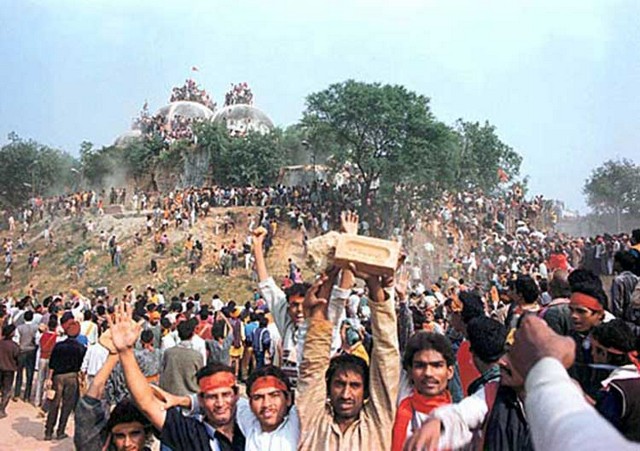By Binu Mathew
Someone demolished my house. I went to court to get justice. The court ordered that the demolisher can build house in the place where my house stood. As a consolation I’ve been allotted some land. Is this justice?
This is a fictitious scenario, but not dissimilar to what happened to Rama Janmabhumi – Babri Masjid that was delivered in the Supreme Court of India today. In a unanimous verdict, the Supreme Court held that the entire disputed land of 2.77 acres in Ayodhya must be handed over for the construction of Ram temple. At the same time, the Court held that an alternate plot of 5 acres must be allotted to the Sunni Waqf Board for construction of mosque. The Central Government has been directed to formulate a scheme for construction of temple within three months. A Board of Trustees must be set up for temple construction.
Babri Masjid, a muslim mosque, was built in 1528–29 by a general Mir Baqi, on orders of the Mughal emperor Babur. Some Hindus believe that it was built on the birth place of the Hindu God Rama.
The land was disputed by the Hindus since 1885. Court cases have been going on since then on the ownership of the land.
On 6 December 1992, a violent crowd consisting of Hindu fanatics demolished the mosque, resulting in communal riots leading to over 2,000 deaths.
A land title case on the site was lodged in the Allahabad High Court, the verdicts of which was pronounced on 30 September 2010. In their verdict, the three judges of The Allahabad High Court ruled that the 2.77 acres (1.12 ha) of Ayodhya land be divided into 3 parts, with 1/3 going to the Ram Lalla or Infant Lord Rama represented by the Hindu Maha Sabha for the construction of the Ram temple, 1/3 going to the Islamic Sunni Waqf Board and the remaining 1/3 going to a Hindu religious denomination Nirmohi Akhara.
Today the Supreme Court of India set aside the Allahabad High Court order and gave the land to the Hindus with certain conditions.
The duty of the Supreme Court was only to ascertain the title suit of the disputed territory. But the court went beyond its jurisdiction and granted the land to the Hindu party.
The five judge panel said in a unanimous decision that Hindu petitioners had established their case that they were in possession of outer courtyard at the site and the Sunni Waqf Board had failed to establish its case. The judges said that the faith of Hindus that Lord Ram was born at the site of the demolished structure is undisputed, and the existence of Sita Rasoi, Ram Chabutra and Bhandar grih are testimony to the religious fact of the place.
The court going above their jurisdiction and awarding the land to the Hindus has opened a pandora’s box in India.
The comparison of right wing Hindutva forces and the racist Zionists in Israel is apt. In fact they are the best friends when it comes to dealing with Muslims.
The Supreme Court verdict is not end of the controversial Ayodhya – Ram Janmabhumi dispute. This opens only a new chapter in the Hindu – Muslim relations in India. One can only hope that harmony will prevail. The mute question is that will there be harmony when one’s house is occupied by another?
Binu Mathew is the editor of Countercurrents.org
9 November 2019
Source: Countercurrents.org

